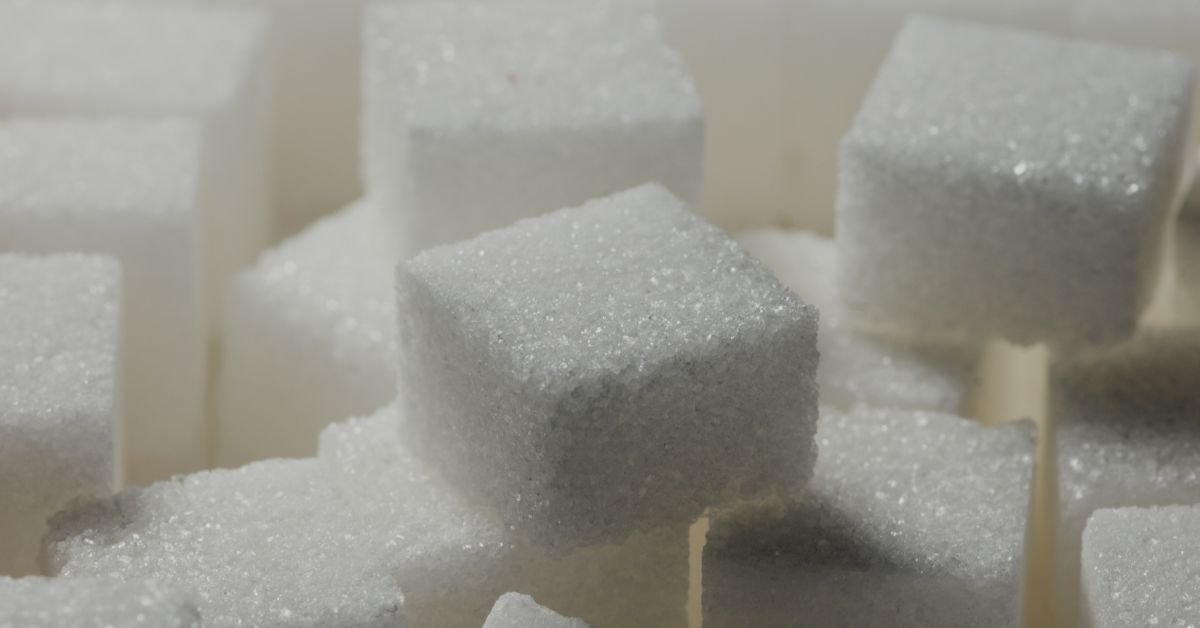Indulging in something sweet has always been a weakness of mine. Whether it’s chocolate as a reward or dessert after dinner, I never hesitated. Although I limited my intake to a few times a week, I began to question if this habit was impacting my mental well-being.
Feeling sluggish, irritable, and mentally foggy after days filled with sugar, I started to wonder about the connection between my sugar consumption and my mental health.
This curiosity led me to eliminate added sugar from my diet for a full month. No jelly beans, no sweetened boba teas, and no honey in my morning oats. The objective was not only to assess how my body reacted but also to evaluate the potential impact on my mood, energy levels, and mental clarity.
The outcome of this experiment was surprising, to say the least.
Why I Opted to Eliminate Sugar
Consuming added sugar is not a daily occurrence for me. Instead, I allow myself a sugary indulgence about twice a week. I typically justify this by claiming that I deserve a treat – whether to reward myself for accomplishing a work goal, to commemorate a special event, or to console myself after a tough day.
While there is nothing inherently wrong with rewarding oneself, I began to notice that my sugar splurges resulted in some unpleasant symptoms, particularly brain fog, disrupted sleep, and mood swings.
The repercussions of sugar crashes are not limited to young children. In fact, numerous studies indicate that sugar has adverse effects on the brain.
Impact of Excess Sugar on Mental Health
“Consuming excess sugar, particularly from refined sources, can lead to rapid fluctuations in blood sugar levels, resulting in symptoms like irritability, fatigue, and difficulty concentrating,” explains Jessica M. Kelly, MS, RDN, LDN, the founder of Nutrition That Heals. She further emphasizes that persistent blood sugar fluctuations can contribute to heightened anxiety levels.
Connection Between High-Sugar Diet and Depression
Marjorie Nolan Cohn, MS, RD, LDN, CEDS-S, the clinical director of Berry Street, points out that a diet high in sugar over time can elevate the risk of depression by inducing inflammation and disrupting essential brain chemicals such as serotonin and dopamine. This disruption can lead to emotional instability, making mood swings more prevalent.
Research Findings on Sugar Intake and Depression
A study conducted in 2017, analyzing data from 23,245 individuals, discovered a correlation between increased sugar consumption and depression, especially among men. Participants with the highest sugar intake had a 23% higher likelihood of being diagnosed with a mental illness compared to those with lower sugar consumption levels.
Connection Between High-Sugar Diet and Depression
Consuming a high-sugar diet over time can potentially raise the risk of depression. This is due to the inflammatory effects and disruption of brain chemicals such as serotonin and dopamine.
Link Between Depression and Sugar Consumption
Research, including a 2024 study, indicates a connection between depression and sugar consumption. However, researchers note that this relationship might stem from emotional distress leading to increased intake of sugar, making it challenging to manage cravings.
Setting Ground Rules for Reducing Sugar Intake
In preparation for an experiment, establishing clear guidelines about which sugars to eliminate and retain was necessary.
Differentiating Between Natural and Refined Sugars
Not all sugars impact mental health equally, according to Kelly and Nolan Cohn. Natural sugars present in fruits and dairy come with fiber, vitamins, and antioxidants that are beneficial for health and regulate glucose absorption. On the other hand, refined sugars found in products like sodas and candies can cause rapid fluctuations in blood sugar levels, leading to mood swings and cognitive impairment.
The Test
Considering this, I made the choice to proceed as follows:
Eager to observe the outcomes, I initiated my test!
Week 1: The “Oh Wow, Does That Really Contain Sugar?” Phase
During my initial week, I noticed changes not in my mood but in my behavior and mindset. This experiment entailed adopting a new practice of reading nutritional labels and ingredient lists. While abstaining from sugar was manageable in the beginning, forming this habit proved to be quite challenging.
I was taken aback to discover the prevalence of sugar in various foods. Many of my favorite savory snacks contained sugar, and even my usual “healthy” post-workout snack, a protein bar, was no longer an option.
Interestingly, I did not encounter any sugar withdrawal symptoms, which are often experienced by individuals with high sugar consumption. “Eliminating sugar can evoke strong cravings due to its impact on the brain’s reward system, leading to withdrawal-like impulses that can be very intense,” explains Nolan Cohn. Common sugar withdrawal symptoms include headaches, fatigue, and mood swings.
Challenges Faced During the First Week
On day four of the challenge, the realization hit hard that grabbing milk chocolate on the way out of the grocery store was no longer an option. Convincing myself to resist this temptation proved to be a tougher task than I had anticipated.
Struggles with Dining Out
During the initial week, the main struggle was deciding what to eat at a restaurant. Many menus do not clearly indicate which dishes contain sugar, leading to unexpected sources of sugar in seemingly savory options like tomato-based curries or wraps with sugary dressings.
After the first week, the journey felt daunting, with the constant need to scrutinize food labels becoming tiresome. Despite not experiencing significant cravings, it was challenging to see any notable benefits at this early stage.
Week 2: A Transformation in Feelings and Vitality
By the time day 10 rolled around, I noticed a positive shift.
Despite my usual tendency to indulge in sugary treats for comfort, I made a conscious effort to change my mindset during this experiment. I focused on better planning for snacks, avoiding takeout, and practicing more self-discipline when grocery shopping.
To adhere to the experiment, I had to put a pause on my indulgent mindset and instead confront my emotions rather than turning to food as a coping mechanism.
Following my therapist’s advice, I began acknowledging and journaling about the uncomfortable emotions that would typically drive me to eat.
I also observed some noticeable changes in my mood. With a more stable energy level due to reduced sugar intake and subsequent crashes, my overall mood felt more balanced.
Week 3: Mental Clarity and Emotional Balance
By the third week, I was pleasantly surprised by my overall well-being.
My energy levels and mood had improved, and I was proud of myself for sticking to a sugar-free diet for an extended period.
Additionally, I observed the following changes:
One notable victory was realizing that treats without sugar could be just as delicious as traditional sugary ones. I indulged in options like nuts, dark chocolate, and fruit in moderation and found them to be quite satisfying.
Week 4: Embracing the New Normal
Despite the tempting call of ice cream during the Cape Town summer, my thoughts of sugar had significantly waned.
Overall, my cravings for sugar had notably diminished, which was a significant accomplishment for me.
Upon reaching the end of week four, I realized:
One of the most rewarding aspects was feeling more empowered in making my food choices. Undertaking this experiment demonstrated to myself that I am capable of overcoming challenges and exercising self-discipline, especially in matters related to food.
What I Discovered From a Month Without Sugar
Cutting sugar from my diet for a month presented challenges, yet the experience proved to be immensely rewarding. Here are the key lessons I gained:
1. The Impact of Sugar on Mood
Previously, I believed that sugar only led to physical energy crashes. However, I discovered that sugar consumption directly influenced my mood and level of patience. By eliminating my bi-weekly sugar indulgence, I noticed a significant improvement in my emotional stability and decreased reactivity.
2. Sugar Is Present in Various Foods
Be vigilant about reading labels as sugar tends to be hidden in unexpected places. Items that may appear healthy, such as yogurt, granola, or protein bars, frequently contain added sugar.
3. My Desire for Sugar Was More Psychological Than Physical
By the second week, I came to the realization that my craving for sugar was not primarily physical but rather a mental connection to comfort and stress relief. This shift in perspective was transformative, impacting not only my eating habits but also my emotional health.
4. Small Steps Lead to Significant Improvements
Eliminating sugar from my diet presented challenges, but the rewards far outweighed the sacrifices. The surprising enhancement in my overall well-being after cutting out sugar surpassed my expectations. I experienced boosts in energy levels, sleep quality, mental clarity, and emotional stability without having to combat frequent fluctuations.
5. I Can Overcome Challenges
Building self-trust has always been a challenge for me. I have a tendency to doubt my abilities when faced with difficult situations. However, through this experiment, I demonstrated to myself that I am capable of succeeding. While eliminating sugar for a month may appear insignificant, it had a significant impact on my self-confidence.
Mindful Moment
Feeling overwhelmed? Try out this complimentary 7-minute meditation designed for mindful eating—or explore our selection of guided meditations to discover another one that resonates with you to promote well-being.
Should You Cut Out Sugar Too?
The benefits of reducing sugar intake can vary for individuals, but it may not be suitable or necessary for everyone to eliminate sugar completely all at once.
According to experts at The Enlightened Mind, completely cutting out sugar, especially in an extreme manner, could potentially have a negative impact on mental health. Focusing excessively on sugar avoidance may lead to feelings of stress, anxiety, and unhealthy eating behaviors.
Moreover, not all sugars are the same, and it is crucial to be mindful of added sugars in the diet. Nutritionist Nolan Cohn highlights the importance of including some sugar in a balanced diet, emphasizing that a registered dietitian can aid in determining the appropriate sugar intake that suits an individual without causing adverse effects.
It’s important to note that eating some sugar is OK, especially when part of a balanced overall diet!
Instead of adopting overly restrictive measures, which may result in a cycle of restricted eating followed by overindulgence, experts recommend consuming sugar mindfully and in moderation for a healthier approach to diet.
Considering Eliminating Sugar?
Gradually reducing your sugar intake may be a more sustainable approach. Both nutritionists recommend taking the following initial steps:
It is also advised by experts to recognize when emotional reasons trigger your sugar cravings. Consider journaling, speaking with a friend, engaging in art, or going outside if your cravings stem from emotional sources.
If you struggle with emotional eating, seeking assistance from a therapist or nutritionist can be beneficial in addressing emotional eating patterns. Emotional eating is a complex issue that may require introspection and self-improvement rather than just eliminating certain foods from your diet.
“The most effective way to handle cravings is through a holistic strategy that emphasizes self-care rather than solely restricting or avoiding sugar consumption,” recommends Nolan Cohn.
Will I Stay Sugar-Free?
Not entirely. I won’t completely avoid sugar forever, but I will be more conscious of it.
I will still indulge in desserts, but I will not use sugar as a primary stress-coping mechanism. Instead, I will prioritize whole foods, balanced meals, and be more aware of how sugar impacts my well-being.
Would I suggest giving it a try? If you are willing to take on the challenge and do not have a history of disordered eating, this experiment could be beneficial. Even if you do not eliminate sugar entirely, cutting back may lead to improved mental and emotional equilibrium. At the very least, it will promote mindfulness about your dietary choices.
And believe me—your future, non-hangry self will appreciate it.
Research on Sugar Intake and Mental Health
Recent studies have investigated the relationship between sugar intake and mental health outcomes, particularly focusing on common mental disorders like depression. The Sci Rep article by Knüppel et al. (2017) presents prospective findings from the Whitehall II study, shedding light on the impact of sugar consumption from sweet foods and beverages on mental well-being.
Emotional Eating and Sugar Consumption
The research conducted by Graybeal et al. (2024) in the Healthcare journal explores the associations between depression and sugar consumption among multi-ethnic young adults. The study suggests that emotional eating and craving control play mediating roles in this relationship, highlighting the importance of understanding psychological factors in dietary habits.
Effects of Sleep Loss on Metabolic Hormones
A study published in Obesity (Silver Spring) by van Egmond et al. (2023) delves into the effects of acute sleep deprivation on metabolic hormones like leptin, ghrelin, and adiponectin. The research focuses on adults with varying body weights, examining how lack of sleep can impact hormonal regulation in individuals with healthy weight and obesity.


